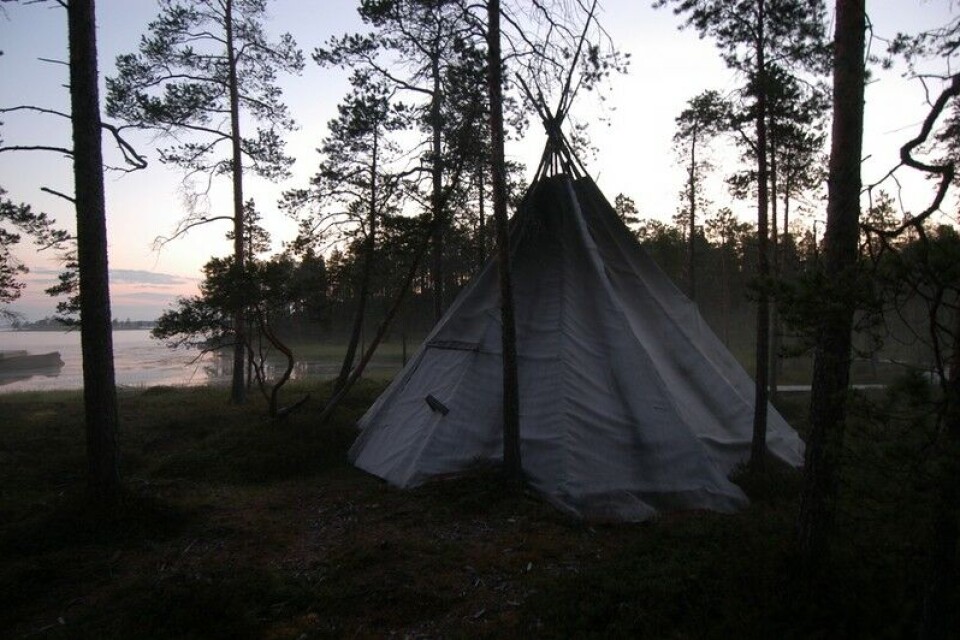
Report by the Climate Change Panel warns of multifaceted negative effects in Finnish Lapland
The recent report by The Finnish Climate Change Panel warns that the Finnish Lapland will have an increased risk of flooding as a result of global warming and increased rainfall. The report states that six areas in Lapland are at high risk for flooding, which is more than in any other region in Finland. The most affected area is Lapland’s regional centre city Rovaniemi. According to the report, the flooding would cause damage to residential buildings and roads. Floods would also affect wastewater disposal and treatment, distribution of electricity and heating and would cause disruptions on traffic connections.
These regions have already seen the effects of flooding yearly and this is expected to rise in the future if reports predictions are correct. The report states that the effects of climate change in Lapland are difficult to predict due to its unique nature and the sensitive Arctic climate. The report warns of heavy rainfalls, flooding and heatwaves in the summer. There is also hope that the measures to restrain the effects of climate change could prevent any worst case scenarios. “We have just started to understand that we need to control climate change and we are beginning to have the tools and resources to prevent damage or at least to begin to plan it,” says Jaana Sorvali, research scientist and an expert on climate change adaptation and mitigation at the Natural Resources Institute Finland.”There is still work to be done with the implementation and adaptation lags 10-15 years behind,” she continues.
While extreme flooding will remain relatively rare, although more likely than before, the report by the Climate Change Panel suggests that the annual rainfall could rise by 6-11 percent in Finland. Predictions say that climate change will cause the snowy season to become shorter, a fact that has already been noted by locals, but it will also cause more rains in the spring and in the summer which, together with the melting snow, are the cause of floods in the North.

The report by the Climate Change Panel concentrates on possible future effects of climate change as well as adaptation and mitigation, the process of finding ways to adapt to effects that we are already seeing. Sorvali mentions that while we need to do more work to prevent climate change and global warming, the fact is that we already see the effects now. “Even if we stopped all emissions now, they would not stop having an effect,” she says.
Scientists need to find a way to adapt to the current changes that are already happening, without forgetting the need to prevent future damage. Sorvali says that Finland has done strategic work and research on a national level, but more research and action is needed to find out what kind of effects it will have on certain regions and livelihoods. According to Sorvali, the expertise of local people should be used more, since they can see the practical changes in the local climate or livelihoods such as reindeer husbandry.
The report discusses the effect of climate change on reindeer husbandry, as climate change is expected to cause extreme weather phenomena that has already been seen in some parts of Lapland. In previous years, there have been reports of larger than normal amounts of snow, which prevent the reindeer from finding food under the snow. Similarly, climate change can also cause hotter and wetter summers. On the other hand, shorter winters will allow the reindeer to find more food in the spring, which seems to be coming in earlier each year. However, this does not compensate for the difficulties seen in the winter. According to the report, this could increase diseases within the reindeer population and increase the already harmful parasites. This, in turn, will cause financial insecurities to people working within reindeer husbandry, and cause uncertainty in traditional Sámi livelihoods. Reindeer husbandry is an important part of the Sámi culture, and climate change could have a direct effect on the right of the Sámi to practice their own culture. According to the report, reindeer herders should prepare for sudden changes in weather phenomenon as well as changes to the vegetation of the area. Effects of climate change have already been seen in the reindeer herding areas in Finland, when the Finnish Food Authority started offering compensation for reindeer herders due to the damage caused by excessive amounts of snow in winter 2019-2020 with a budget of 6 million euro.
The report calls for more adaptation and mitigation action ungently. Adaptation and mitigation expert Sorvali currently resides in Germany, where extreme flooding wreaked havoc during the summer of 2021. The floods were a wake-up call for many Germans and it was publicly discussed that not enough had been done to prevent the disaster. As a research scientist, Sorvali conducts research on what makes people take action on climate issues, and says that she is happy that there has not yet been catastrophic events in Finland that would have caused people to react. “It is wonderful that there is more discussion about this, maybe this is the way we can prepare to adapt and control climate change before catastrophes happen,” she says.
Sorvali is glad that effects of climate change are being discussed, as she has also conducted environmental psychology research to find out what makes people take climate action. “We [in Finland] have not experienced big risks that we immediately connect to climate change,” she says. While she is pleased that catastrophes have not happened, she speculates that this might be the reason why climate action and adaptation have moved slowly. She is pleased that there is continuous conversation on the topic in Finland, and wishes that the conversation will assist with preventing climate change and helping with adaptation and mitigation actions.
The report by the Climate Change Panel suggests that by mid century, the average temperature could be 2,0–3,2°C higher than currently if action is not taken. At this time, Lapland’s climate has risen by 0,5°C-0,7°C in the last three decades. But the news is not only bad - according to the report, Lapland has overall succeeded in cutting its carbon dioxide equivalent by 14% per person between 2005-2019, and the whole region’s emissions were decreased by 18%.
















